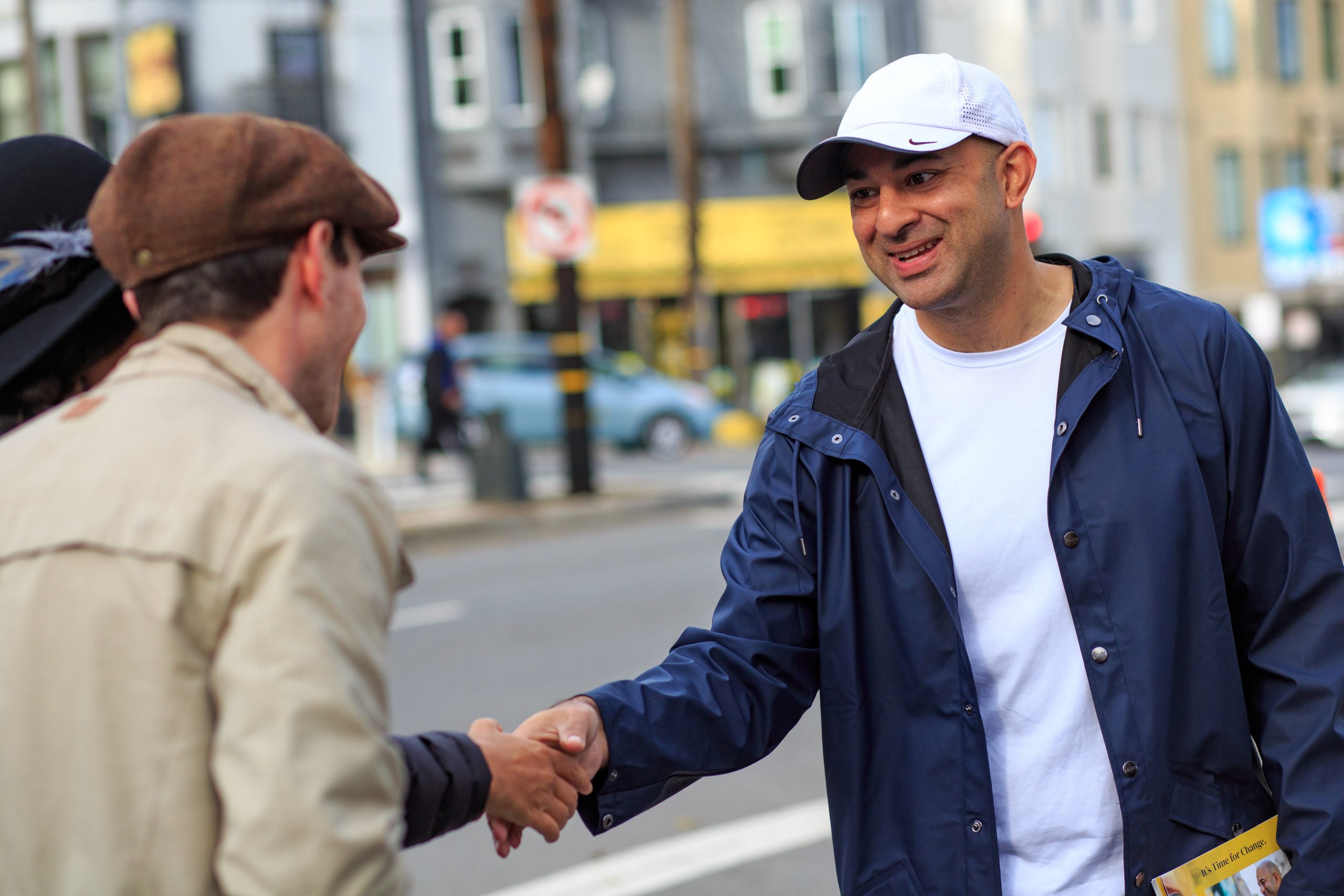Beneath a green awning in the Tenderloin sits a portal to Pakistan. It is the 1990s and eight-year-old Bilal Mahmood ’09 looks forward to his weekly trip with his family from their home in Palo Alto to San Francisco, where they stop by Shalimar, a restaurant in the Tenderloin.
There are only about 10 tables inside Shalimar, but three of them are almost always full. As the staff of four prepares a taste of home for the Pakistani cab driver in the dining room — separated from the kitchen by only a counter — Mahmood and his family enter the establishment for more than just a bite to eat. For them and those who join them, Shalimar offers a taste of Pakistan, where Mahmood’s parents immigrated from almost two decades before.
Now, after nearly three decades that have taken him from microlending to the Obama Administration, Mahmood is running to represent California Assembly District 17. The district represents eastern San Francisco and includes the Tenderloin, his beloved childhood destination.
Mahmood hopes to fill a vacancy that surfaced after San Francisco Mayor London Breed appointed former District 17 assemblymember David Chiu as San Francisco’s city attorney in September. A special election held sometime in early 2022 will determine who will fill the seat until the regular election cycle next fall.
Mahmood, who has never held public office, is running against three fellow Democrats: San Francisco Supervisor Matt Haney M.A. ’11; chief of staff to the district attorney, former supervisor and current vice chair of the California Democratic Party David Campos ’93; and Thea Selby, a former board president and current trustee of San Francisco City College.
While Haney’s and Campos’ campaigns are bolstered by their political careers, Mahmood’s background as a neuroscientist, Stanford researcher, entrepreneur, philanthropist and policy analyst in the Obama Administration uniquely position him to solve the problems facing San Francisco, he said. Mahmood said that incumbent politicians cannot solve the problems that they are trusted to solve because they do not have the education or background needed for the job.
“If you look at the challenges that face our city and our state — pandemic, healthcare, climate change — those are all science, technology and policy problems,” Mahmood said. “And my background is actually perfectly suited to address those. That’s the experience we need, and it clearly is not being addressed to the problems.”
Still, political scientist and San Francisco State University professor Jason McDaniel said that Mahmood faces the same challenges as anyone who has not run for public office before, including insufficient funding and lack of name recognition. According to the California Secretary of State’s website, Mahmood’s only campaign contribution so far is his own $50,000. But Mahmood said that the figure, which was reported on Oct. 4, does not reflect additional contributions that will be reported at next year’s filing deadline. According to Mahmood, his campaign raised more than $250,000 in its first month.
“It’s hard for newcomers because they’re just not as well known [and] money is not enough,” McDaniel said. “I don’t give him much if any chance at all to win this race.”
Aware of the challenges he faces, Mahmood headed to North Beach Farmers Market on Oct. 23 to do some grassroots campaigning. In an onsite strategy meeting around 9 a.m., Mahmood and three of his volunteers discussed the best opening line to earn the interest of coffee-starved morning pedestrians.
“Hi, I’m Bilal Mahmood, and I’m running for State Assembly,” he said. The volunteers joked and tried out other lines, eventually settling on Erica Johnson’s suggestion: “Hi, my friend over there is running for State Assembly.”
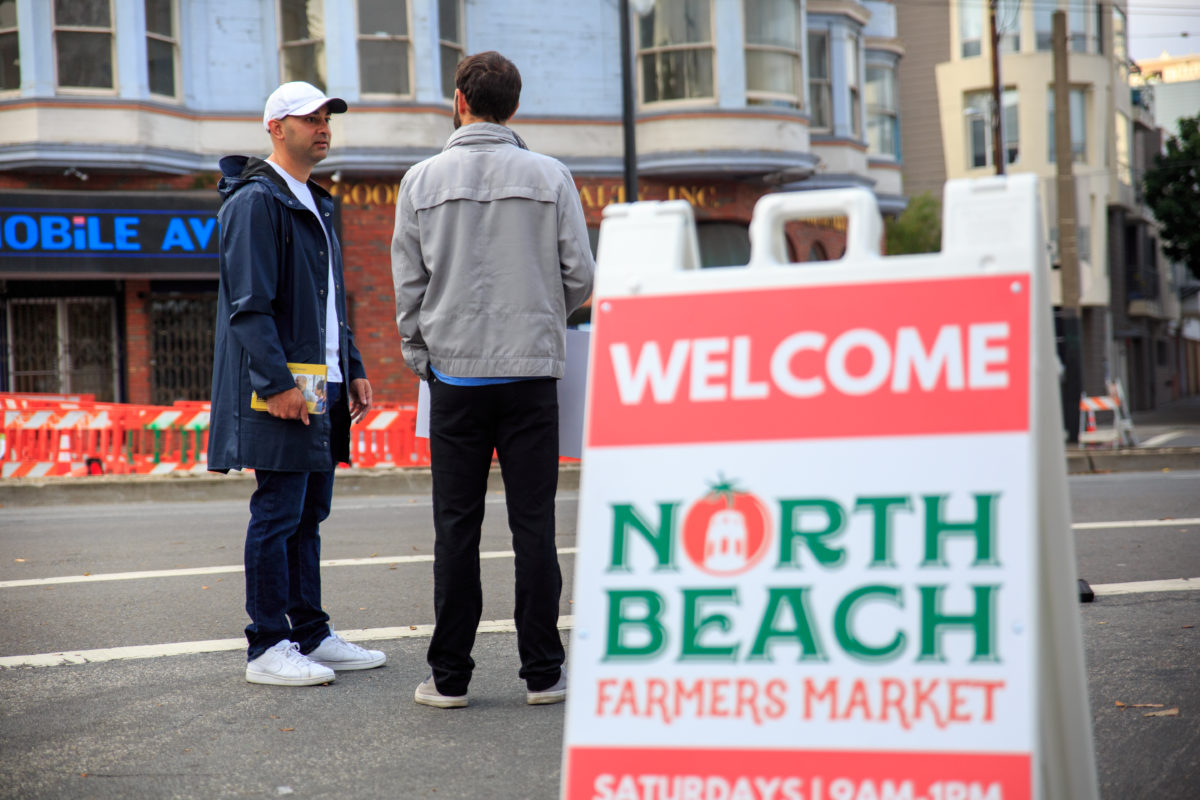
Though the group had settled on a plan for getting attendees to speak with strangers about a little-known candidate, another challenge quickly revealed itself: most market-goers didn’t even know the special election was happening. Conversations with voters quickly became half explanation of the election and half pitch for Mahmood.
Many approached Mahmood, who wore white Nikes with dirtied laces and blue jeans, to voice their concerns in hope of hearing solutions that would go further than routine politician promises.
“Everyone loves to complain about it, but no one ever wants to go to any meetings or do anything about it,” one market-goer told Mahmood.
That inaction, Mahmood said, is why he is running for State Assembly.
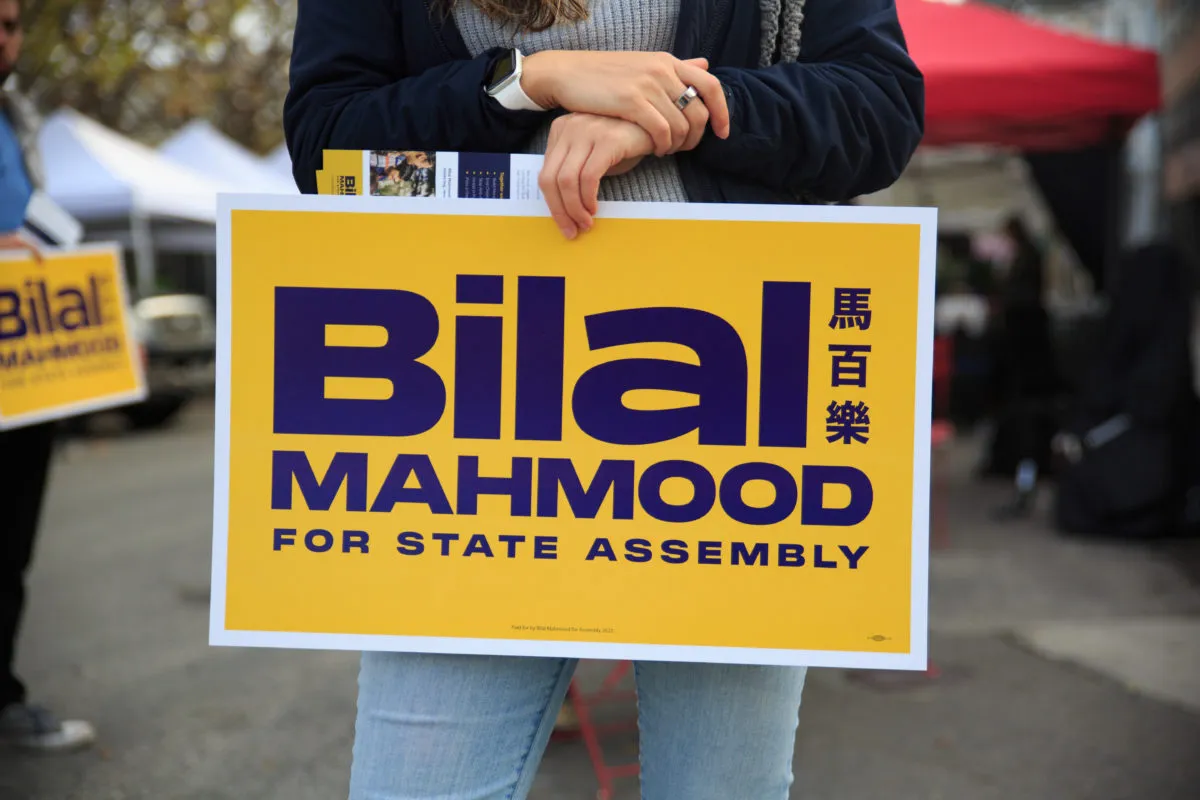
“I think a lot of the problems in San Francisco is [sic] that people take the job they think is the stepping stone for the thing they want,” Mahmood said. “They’re always optimizing for the next job they want, a job they’re qualified for or should be doing today.”
Representing a district that includes North Beach, the Mission, Chinatown and the Financial District, among others, is not easy, McDaniel said. There is no uniform constituency and the varied neighborhoods have their own priorities. So Mahmood finds himself selling solutions to multiple issues.
Jason Shen ’08 M.S. ’09 said that the campaign has helped his friend and philanthropic partner Mahmood “adapt to both that sort of super focused problem solving and the broader, like: ‘how do we move a whole city, whole state forward?’”
Chinatown is a large segment of District 17 and a major part of Mahmood’s platform. Mahmood referenced an uptick in anti-AAPI harassment — 832 reported instances in California between March and June of 2020. He proposes a hate crime fund, which would provide financial assistance for individual and small business victims of anti-AAPI hate crimes and create community-based violence prevention programs, according to Mahmood’s campaign site.
According to McDaniel, it is critical for Mahmood to connect with the AAPI community because “there is no city where the Chinese American and Asian American population in specific are more important to the [election] outcomes.”
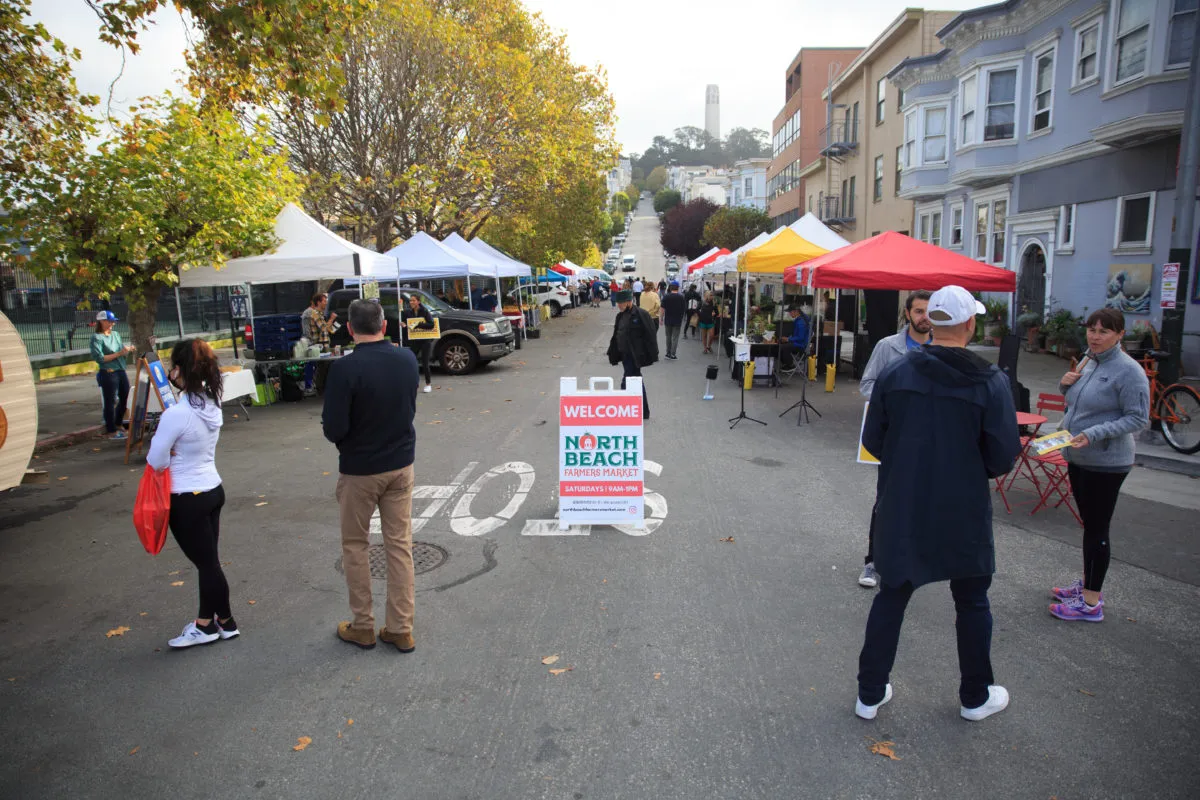
Mahmood’s platform also addresses homelessness, which plagues the Tenderloin. His proposals would extend the COVID-19 eviction moratorium, create a public-private task force that provides a counselor for each unhoused person and ban exclusionary zoning to allow for the construction of multi-family housing.
Mahmood drew similarities between the Tenderloin and Pakistan, where he finished his junior and senior years of high school after his family left the U.S. during the post-9/11 Islamophobia outbreak. In Pakistan, he witnessed widespread inequality that highlighted the “strong relationship between inequality and non-functioning government,” he said. Mahmood continued, “the more wealth gets concentrated in the power of the few, the more they control the government and it acts in their interests.”
As Mahmood walks through the Tenderloin today, he said that he cannot help but think of the Pakistan he knew in the 2000s. The place he once visited with a boyish excitement each weekend has become a community battered by humanitarian crises.
“It’s very sad, but I see a lot of similarities [to Pakistan] when I walk around the Tenderloin,” Mahmood said.
But Mahmood has not lost sight of the taste of home that he says the Tenderloin offers so many immigrant families: “I think Tenderloin is the beacon of hope [San Francisco] used to represent and what I’d like to help recover.”
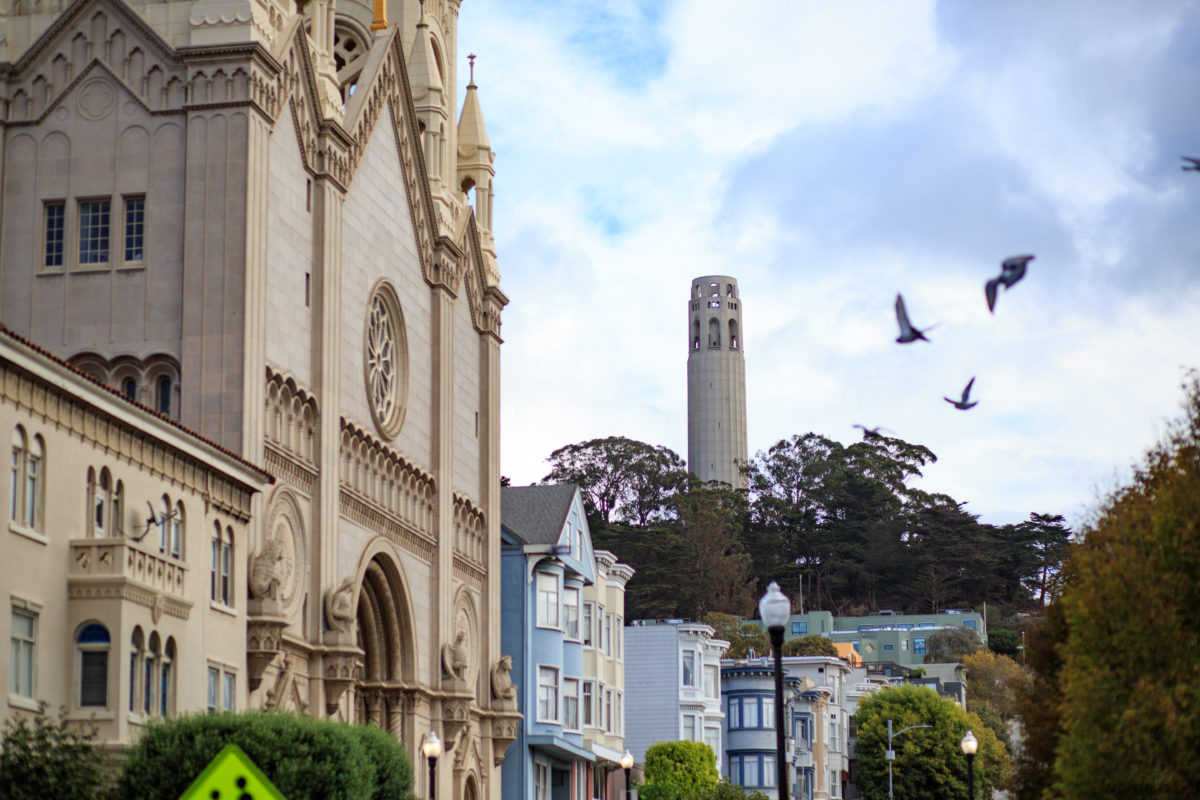
This article has been updated to reflect that David Campos is a Stanford alumnus and currently serves as vice chair of the California Democratic Party. This article has also been updated to clarify that the $50,000 contribution figure may not reflect additional contributions made after Oct. 4, and that the campaign raised $250,000 in its first month, according to Mahmood. This article has also been corrected to reflect that Thea Selby is a former board president and current trustee of San Francisco City College. The Daily regrets this error.
